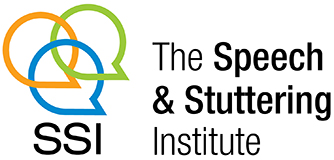Who are we and what makes us different?
We are a team of speech-language pathologists with extensive experience in the area of speech sound disorders, including motor speech impairments, such as childhood apraxia of speech (CAS). Our clinicians are trained in the PROMPT system (Prompts for Restructuring Oral Muscular Phonetic Targets), which has been found to be an effective tool for the treatment of motor speech disorders.
The Speech and Stuttering Institute has been designated by the Ontario Ministry of Youth and Child Services as a Centre for Training and Development for conducting research and providing evidence based therapy programs.
We consult with other professionals who may be involved with the children, in order to gain a better understanding of their needs.
Program Description
SPEECH PROGRAM:
Please note that the focus of our speech program is to provide assessments and individualized speech therapy to children whose main area of communication difficulty is the production of speech sounds, often resulting in reduced clarity of the child’s spoken words.
Our therapy sessions are intensive and motor based, with a focus on the development of speech sound production (articulation).
We pay special attention to how a child moves different parts of the mouth (e.g., lips, jaw, tongue) as s/he attempts to imitate and produce speech sounds.
We work on speech skills within language-rich contexts, including games, stories, crafts, role-playing and drills.
Skills that facilitate participating in intensive motor speech therapy sessions include the following:
- Child is communicative and attempts to comment, ask questions, request, protest.
- Child demonstrates joint attention in a variety of activities.
- Child’s understanding of spoken language is as expected for age.
- Child demonstrates an understanding of the concept of imitation, as this is an integral part of the therapy process (e.g., looks at a clinician’s mouth while being given verbal, visual, and/or tactile cueing).
- Child demonstrates the ability to change how a word is said in response to the clinician’s cues, even if the attempt is not accurate.
- Child and parent/caregiver practice at home once goals are achieved in therapy.

If you have any questions, please do not hesitate to reach out to a member of our team for further consultation.
Frequently Asked Questions
This depends on the age of your child and whether he/she can be understood by familiar and unfamiliar people. It also depends on your child’s therapy readiness skills (e.g., ability to attend and participate in adult directed activities, ability to imitate non-verbal or verbal models).
If your child does not show these readiness skills, less direct approaches are used, such as play-based therapy and activities to develop therapy readiness skills.
We recommend starting with an 8 week block of therapy, after which time we can determine with the parent whether additional therapy is needed.
Observe therapy sessions in order to learn what activities and strategies are used by the clinician to facilitate your child’s success in achieving therapy goals. Practice homework activities on a regular basis to maximize progress. Read age-appropriate stories to your child regularly in order to develop language skills, such as vocabulary, concepts, and grammar.
